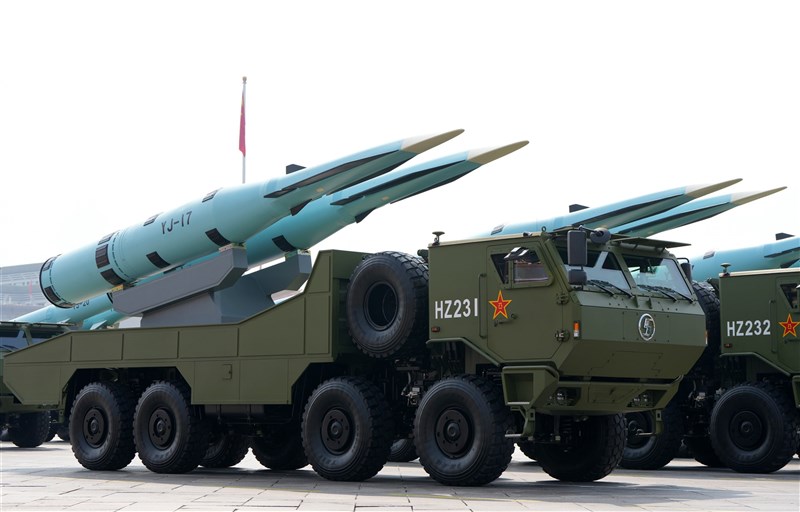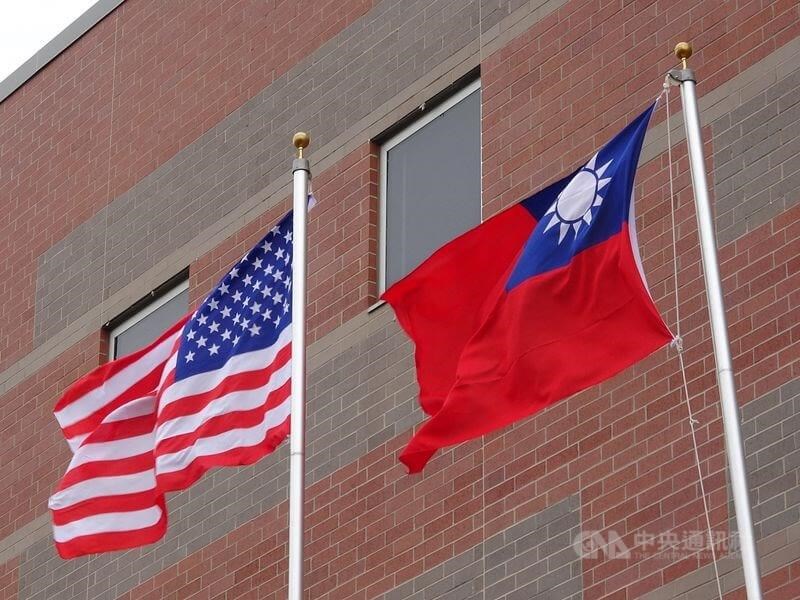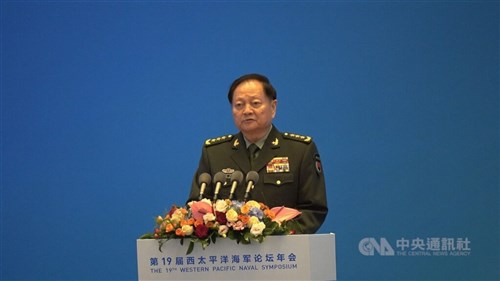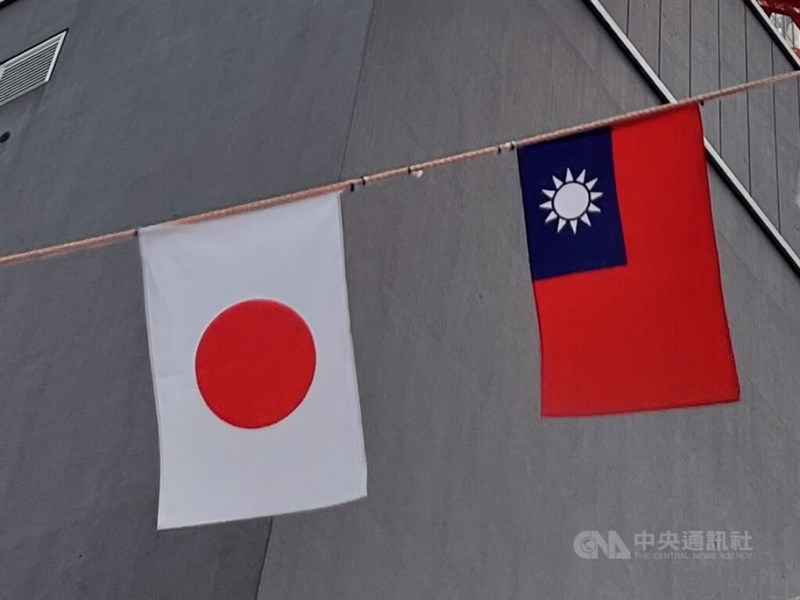
Taipei, Sept. 3 (CNA) The array of new missile systems unveiled at a military parade in Beijing on Wednesday, while not specifically designed for a Taiwan invasion, could deter foreign forces from intervening in a cross-strait conflict, according to defense experts.
Chinese President Xi Jinping (習近平) hosted the parade in Tiananmen Square to mark the 80th anniversary of the end of World War II and the War of Resistance Against Japanese Aggression. With more than 20 international leaders in attendance, Xi inspected a grand display of military weapons, including previously unseen models.
Missiles target foreign intervention
Among them were the "YJ," or "Eagle Strike," family of hypersonic anti-ship missiles, including YJ-17, YJ-19 and YJ-20, which defense experts say can be deployed to strengthen China's anti-access/area denial (A2/AD) posture near the Taiwan Strait.
For example, the YJ-19 has a range of 1,440 kilometers and is capable of striking ships deployed as far as the Second Island Chain, which stretches from Japan to Guam and Indonesia, said Kao Chih-jung (高志榮), a researcher at Taiwan's government-owned Institute for National Defense and Security Research (INDSR).
However, these missiles are unlikely to pose a significant threat to Taiwan's Navy, he said.
"There is no way we're going to put our main battleships in the Taiwan Strait at the opening stage of a war. We'll try to move them all to the east coast," Kao said.
The anti-ship missiles, therefore, would pose a greater threat to American vessels that come to Taiwan's aid should Washington decide to intervene, he argued.
Su Tzu-yun (蘇紫雲), a research fellow at the INDSR, agreed.
"The YJ family of missiles will strengthen China's A2/AD posture around Taiwan. They would cut off foreign fleets, preventing them from approaching the Taiwan Strait," Su said.
Su also called attention to the DF-61 intercontinental ballistic missile, the JL-3 intercontinental-range submarine-launched ballistic missile, and the AJX002 underwater drone, all of which made their debut on Wednesday.
These weapons would serve the purpose of "political denial," as they can be outfitted with nuclear warheads to dissuade other countries from providing Taiwan with logistical support or sending troops to defend it should war break out in the Strait, Su told CNA.
Stealth drones add new threats
Kao said other potential threats to Taiwan included what appeared to be four new stealth attack drone models displayed at the parade.
Speaking to CNA, the scholar noted that the four drone models, rolled out after a GJ-11 stealth drone, lacked vertical stabilizers and were shaped like stealth fighter jets.
In combat, these drone models could be deployed alongside fighter jets to more effectively establish air supremacy over enemy fighter jets, he said.
Due to their stealth capabilities, they would also increase psychological pressure on enemy pilots, limiting their movements, he added.
When outfitted with ammunition, the drones will pose a risk to Taiwan's military bases and other ground targets, Kao said, suggesting close monitoring of future testing of the drones and their official introduction into the People's Liberation Army.
-
![U.S. policy unchanged despite Taiwan omission in defense strategy: Analysts]() U.S. policy unchanged despite Taiwan omission in defense strategy: AnalystsThe absence of Taiwan in the Pentagon's recently released 2026 National Defense Strategy (NDS) has raised concerns about the United States' commitment to the island nation's defense.02/07/2026 04:31 PM
U.S. policy unchanged despite Taiwan omission in defense strategy: AnalystsThe absence of Taiwan in the Pentagon's recently released 2026 National Defense Strategy (NDS) has raised concerns about the United States' commitment to the island nation's defense.02/07/2026 04:31 PM -
![Xi's military purge raises Taiwan miscalculation risk: Experts]() Xi's military purge raises Taiwan miscalculation risk: ExpertsChinese President Xi Jinping's (習近平) ongoing purge of senior military leaders, most recently targeting top general Zhang Youxia (張又俠), could help him consolidate power and potentially increase the risk of strategic miscalculation over Taiwan, according to experts.01/27/2026 09:31 PM
Xi's military purge raises Taiwan miscalculation risk: ExpertsChinese President Xi Jinping's (習近平) ongoing purge of senior military leaders, most recently targeting top general Zhang Youxia (張又俠), could help him consolidate power and potentially increase the risk of strategic miscalculation over Taiwan, according to experts.01/27/2026 09:31 PM -
![Japan vote a 'high-stakes gamble' of importance to Taiwan: Experts]() Japan vote a 'high-stakes gamble' of importance to Taiwan: ExpertsWidely seen as the most Taiwan-friendly Japanese prime minister since Shinzo Abe, Sakae Takaichi dissolved the House of Representatives on Friday three months after taking office, setting the stage for a snap election on Feb. 8 as she attempts to consolidate her leadership.01/24/2026 05:55 PM
Japan vote a 'high-stakes gamble' of importance to Taiwan: ExpertsWidely seen as the most Taiwan-friendly Japanese prime minister since Shinzo Abe, Sakae Takaichi dissolved the House of Representatives on Friday three months after taking office, setting the stage for a snap election on Feb. 8 as she attempts to consolidate her leadership.01/24/2026 05:55 PM
-
Society
Boy dies after pedal boat capsizes at Liyu Lake in Hualien
02/19/2026 08:08 PM -
Society
Penghu magistrate's condition improving after surgery: Hospital
02/19/2026 06:09 PM -
Society
Taipei warns residents as landfill fire smoke drifts across districts
02/19/2026 02:48 PM -
Society
Taiwan headline news
02/19/2026 02:28 PM -
Politics
Ex-recruits look back as alternative diplomatic service phased out
02/19/2026 12:27 PM


